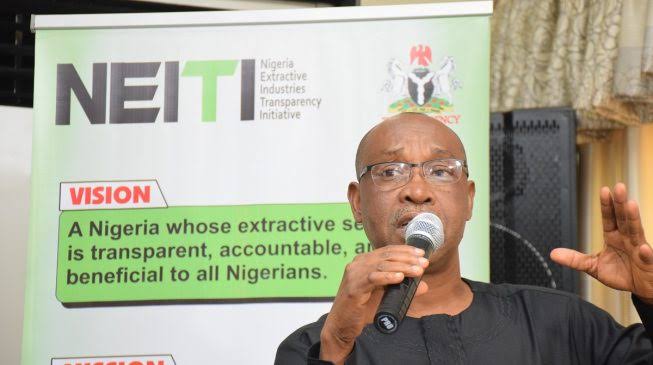NEITI: Recurrent expenditure of 21 states higher than their FAAC allocations

A new report published by the Nigeria Extractive Industries Transparency Initiative (NEITI) has shown that the recurrent expenditure of 21 states is higher than their disbursements from the federation accounts allocation committee (FAAC).
According to a statement signed by Orji Ogbonnaya Orji (pictured), NEITI’s director of communications and advocacy, a total of N8.15 trillion was shared among the three tiers of government in 2019.
The federal government received N3.37 trillion, representing 41.4% of total disbursements; the 36 states, N2.761 trillion (33.9%) while the 774 local governments shared N1.649 trillion (20.2%) of the total disbursements.
“In 21 states of the federation, net FAAC disbursements alone could not service their recurrent expenditure,” the statement read.
“The figures clearly indicated that no state was able to finance its total budget based on FAAC disbursements alone. These states would need Internally Generated Revenues (IGR) to fulfil this purpose,” it read.
“Even with the addition of IGR to FAAC disbursements, no state can independently finance its budget. Thus, all states would be faced with the option of either not fully implementing their budgets or borrowing to achieve this.”
According to the report, Osun and Cross River states have the lowest allocation of N24.14 billion and N36.22 billion while Delta state received the highest disbursement of N218.58 billion.
“Put differently, if we assume that the net disbursements received by both states were fairly constant, then, the amount received by Delta State in 2019 alone can be used to cover disbursements to Osun state in nine years
On the deductions from states’ allocations, the NEITI Quarterly revealed that Yobe state had the lowest deductions of N2.16 billion while Lagos state had the highest deductions of N44.45 billion.
According to the report, “it is striking that the two states with the lowest net disbursements (Osun and Cross River) had the highest deductions (N27.19 billion and N18.55 billion respectively) after Lagos state”. (The Nation)

